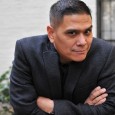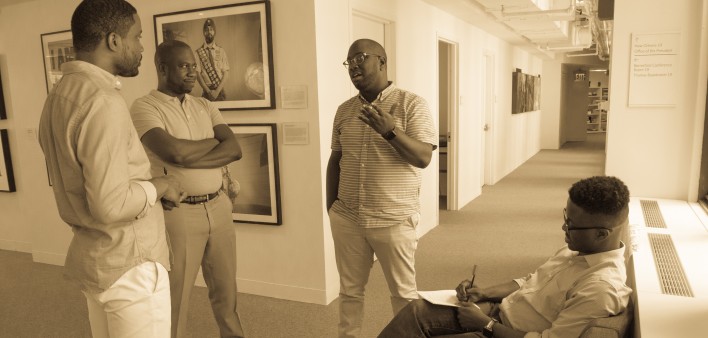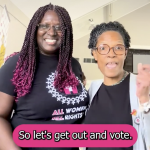HIV is an odd field to work in. Founded in a crisis, much of the fervor and rhetoric from that time is still pervasive in HIV community groups. You hear talk of “the cause” or moralism about “saving people” casually discussed in relationship to a person’s work (regardless of what the actual job entails). There is a massive need to do without a requisite time to reflect, to analyze, and to heal. From the beginning, I’m not sure anyone thought of HIV as a career. We built an infrastructure that does not account for the future or retirement. At some level, it seemed selfish to do that in an epidemic so associated with death and dying; at another level, there never seemed to be the funds to institutionalize these kinds of benefits. Those concerned with these went to work in other sectors and away from “the frontline.” People in the non-profit field brag about not taking vacations, or working through weekends.
Phil Wilson, founder of the Black AIDS Institute, announced his retirement last month. Ronald Johnson, another leader in the field – most recently with AIDS United, retired late last year. Both are Black gay men openly living with HIV who came into HIV work in the 1980s. They have helped build (or rebuild) several local and national organizations. I am not sure either of them thought that they would live long enough to retire. Yet here we are.
In my work, I have been lucky enough to meet a diverse swath of folks at HIV organizations. I applaud the staff, boards and volunteers. When in need, I have gotten food, shelter and health care from some of these amazing people and organizations. But I wonder at how much care these people are getting, at what their lives will look like when they cannot work anymore. Who takes care of the caretakers?
Burnout is a fascinating phenomenon. We know it when we see it in others; it is much more difficult to see in oneself. It has three primary dimensions: increased emotional exhaustion, diminished sense of personal accomplishment, and increased depersonalization. At Latino Commission on AIDS, Dr. Miriam Vega brought organizational and social psychology into our capacity building work with community groups and organizations nationally. She developed a series of workshops and trainings on burnout just for managers and staffs in the HIV field. We ironically noted burnout narratives in our own team through this workshop: everyone was being pushed “for the cause” beyond their capacity and without reprieve. And this we considered normal.
As the Chair of a largely-volunteer organization (and an admitted workaholic), I have to remind myself what burnout looks like, what encourages it, and attempt to ameliorate the conditions that bring it on. With the US People Living with HIV Caucus, this is a consistent concern of mine. We are those people who always say “I’m fine” when asked, even when we are stressed, over-burdened, and frustrated. We are so used to hiding or downplaying our own concerns that we continue to do it, even with each other.
And we have attended and organized so many different protests and events in the past year that many of us are already stretched thin as 2018’s events are starting to line up (we’re partners on the annual HIV legislative lobby day AIDSWatch March 26 & 27, 2018.)
I have to ask: do I push Caucus members to do something for the sake of appearing productive in the HIV field? Which action items really do need to happen, and which serve others’ agendas? As a diverse group of people living with HIV, we come with various trauma, differences, and concerns. What we have in common is this virus, a health condition that has restructured our interactions, social support, knowledge, and health care. We make us a community through our communication and connections.
For this blog, I looked up a few articles on volunteer burnout amidst HIV and other non-profit endeavors (Maslach and Leiter, 2005; Moreno-Jimenezand Villodres, 2010; Omoto and Snyder, 1995). These inform me to pay attention to narratives about increased exhaustion (“I barely sleep”), reduced efficacy (“I can’t finish anything”), and increased cynicism (“does any of this even matter?”). They also taught me that certain factors impact our burnout as volunteers: time serving the organization; intrinsic (“I share this value”)/extrinsic (“I do this for my career”) motivation; and social support. (If you’re concerned about burnout with paid staff, then the kinds of tasks are an integral factor to burnout.) If we know this, then we can find solutions.
There are many ways to stave off burnout. I applaud breaks – even if it’s just one day or one afternoon per week that people dedicate to themselves. Sometimes it’s permission to say ‘no’ or cancel an event; sometimes it’s having a difficult conversation when a role does not quite fit the person who volunteered for it. Most of the time it’s encouraging the work that does happen, celebrating the amazing stuff people produce with little resourcing.
I am not overlooking the incomplete things; nor am I downplaying accountability. I am recognizing that, at times, the lack of production can be a sign of resistance: we do not find value to prioritize that assignment/event/action over what we’re doing in our lives. One of the mistakes I’ve seen in organizations is believing that “we have to do this” or “if we don’t do it, no one will” without taking the time to reflect to see if these are true or even relevant.
Two summers ago, I found the Being Lazy and Slowing Down website, and it helps me to rethink and reframe notions of productivity, to question the “busy” which fills up most of our lives (for fun, take note how often people need to tell you how busy they are). When living with HIV (or any other health condition), stress causes harm.
I see the Black Emotional and Mental Health (BEAM) workshops, CounterNarrative Project and Thrive SS gatherings, and the Positive Women’s Network-USA Summit as great examples of intentional community building that takes into account burnout and planning ahead. At the Positive Women’s Network-USA Summit, throughout the day and evenings, there are skills building and organizing sessions, alongside recreational activities to increase connections and fun. This year, the Summit will be April 12-15, 2018 in Myrtle Beach, SC. (If you know a woman living with HIV, then support her getting there.)
As resources and organizations shift, we might try different forms of accountability in our HIV community: we can support when people say “I need a break”; we can be compassionate when someone does not have the skills or resources or confidence to finish a project; we can check in when someone falls off the map. We could ask for help when we are not (gasp) expert at everything. We can have conversations about careers outside of HIV (or maybe even how to retire). I want our community to be concerned about our wellness – beyond our viral load counts.








Comments
Comments